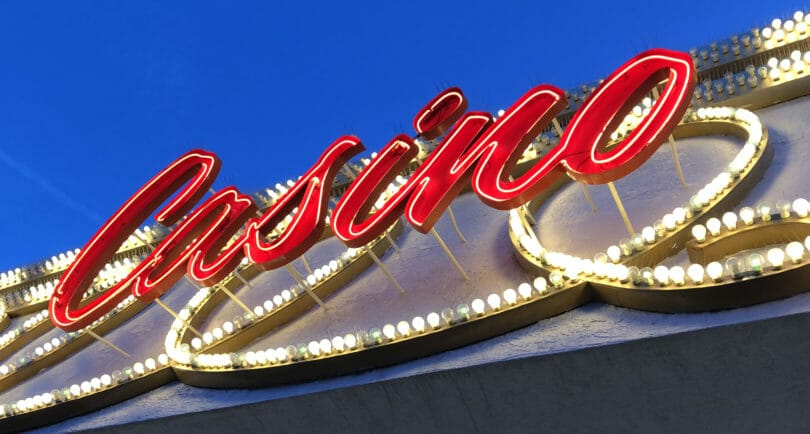On a casino forum recently, a poster was lamenting that gamblers were treated worse under a major casino comp program than non-gamblers. Her argument was that casinos were treating non-gamblers better than gamblers in the program in terms of comp earnings per dollar spent, and that they didn’t care about gamblers anymore. True?
STATUS: I’m going to give this one a mixed – not necessarily true or false. Casinos are definitely trying to attract non-gamblers due to changing markets and to diversify their income, but at the end of the day they’re still casinos. A deeper look shows a balanced approach, mostly driven by how they make their money.
First off, let’s be clear – the major casino companies are still casino companies. They’re not building a bunch of non-gaming resorts. Caesars does have a branded property in Dubai that is a non-gaming property, but it was developed as part of a partnership.
As such, those who gamble will of course be welcomed at a casino, and be an important part of the business. It doesn’t hurt that every game in the casino has some sort of house edge or rake (in the case of poker), so it tends to be a profitable endeavor from that perspective.
Non-Casino Spend vs. Casino Spend
One of the points the poster made was that because the casino gives more points for spending on restaurants or gift shops vs. wagering on casino games, they value non-gamblers more. The problem with that is it presumes they make an equal amount on $100 worth of bets on, say, a slot machine, vs. $100 spent in a gift shop or restaurant.
When you last went into a casino gift shop, was that 20 oz. bottle of soda $1.50? Or $4? It was probably closer to the latter, or even perhaps a bit more nowadays. The profit margin on that product, along with many others in the casino, tend to be very high – let’s call it 50% in the case of that soda. High end restaurants, other types of shopping – it’ll all tend to be marked up considerably compared to what you can get outside the self-contained resorts. Hotel spend is a bit more nuanced, but over time should make the house money too, presuming you purchased a room vs. getting it comped.
So let’s presume they can make something like $30-50 on that $100 in spend on that sort of spending (it may be a bit more or less, but for the purposes of the example it’ll do).
Compare that to a slot machine, where $100 of coin-in would generate an expected return for the casino of $5-$15, depending on the selected Return to Player settings. As such, gamblers will need to wager more to equal that profit potential for the casino (and, of course, many continue to wager well beyond $100 in coin-in for a day).
As such, the speed at which you earn points or comp dollars for non-casino spend tends to outpace casino wagers. For instance, you can earn 25 tier credits per dollar of non-casino spend at Las Vegas Mlife properties. Caesars Rewards now gives 5 tier credits per dollar spent on hotels. Those earnings are strong compared to wagered earnings, but coin-in tends to be a big multiple vs. direct cash spend.
Tier Matchers are Spenders Too
Another reason she put forth for casinos preferring non-gamblers was because of their willingness to tier match with casino companies and hotel companies alike. But those tier matches are going to be people who have at some point spent enough money to earn that status somewhere to begin with.
Meanwhile, players more often than not have to ultimately renew their tiers the old fashioned way – by earning it. If a casino matches another casino program for a player, they are hoping for a shot at their gambling dollars. If they match hotel tiers, perhaps it’s the hotel spend they believe they can capture. It could be a mix of both. (As the previous section indicates, both matter to casinos.)
Tier Matching, like other incentives to get a card or to come into a casino, is designed to encourage spending. In fact, compared to a new player offer, it’s designed to try to lure people to spend more, and more often, to keep the perks they pick up with a match. In the case of Caesars Diamond, with perks such as waived resort fees, it can be a very valuable one.
She noted that for those who offer higher tier lounges, such as Caesars with their Laurel Lounges, tier matching and non-gambling point accelerants fill the lounges with non-gamblers. That’s unlikely – those who are predominantly non-gamblers are probably so because they enjoy the nicer meals and perks a casino resort offers; a lounge is usually a perk for gamblers to grab a snack and a drink, sometimes perhaps a bit more. A fine diner will likely look at a lounge and its offerings similarly to a buffet – not the primary goal – with a few exceptions for those lounges that really aim for a top tier experience.
Non-Gaming Spend Matters
Casinos want to make sure that if you are spending a lot on non-casino spend, you still show a card. There’s an important reason for this: Data. Like with gamblers, casinos want to understand the spending patterns of non-gamblers too. Some gamblers also spend on meals and other non-gaming options, which makes them even more valuable than the gambling alone.
The increased point earnings is another way to ensure players attach a card. Then they can see how various visitor types spend money and work to optimize their offerings based on that information, especially when it comes to things like a non-gambler accompanying a gambler, etc.
The Gambler’s Secret Weapon: Comps
If you’re a gambler concerned by non-gamblers getting some sort of special treatment, don’t forget your ace in the hole: Comps. Each casino has a formula based on your historical play that they use to encourage you to come back.
Non-players won’t get casino offers, and given casinos put a large portion of their marketing budget on player development and return offers, it’s likely this would tip the scales in favor of the players.
With competition growing and properties being built closer and closer together, every dollar counts, and so casinos will value anyone who’s willing to spend money within their properties, and offer incentives to ensure this happens, including points, comp dollars, and promotions.








